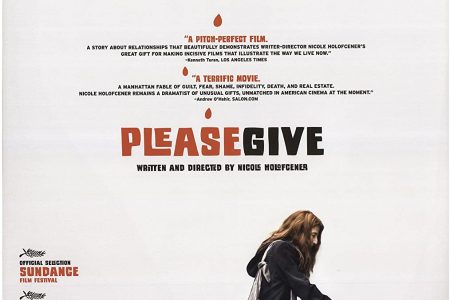Audition
Audition is a rather dull film until the last half hour. A man loses his wife to sickness and, after seven years as a widower, he has a friend who fakes an audition for a film in order for him to meet someone. He picks a girl and starts a relationship with her. There is a vague sense of the work-based solitude of modern Japanese life, perhaps, but nothing more.
The only reason to see this film is for the last thirty minutes, which is worth it. The man has visions of why the girl might have some skeletons in the closet, then the woman brutally tortures him, in a graphically vivid scene. After paralysing him, but leaving his nerves sensitive, she begins by sticking needles in his stomach, then under his eyes, before cutting off one of his feet with a piano wire. Then, the man dreams that this is all a nightmare he has invented as a reason for jilting the girl after sleeping with her, only for him to wake and realise that it is reality. The man doesn’t die because his son comes home, surprising the torturer, and accidentally kills her by kicking her down the stairs when she chases him (with the most realistic looking broken neck I have ever seen on film). And the film ends. The torture scene is squirm-inducing and painful to watch, as it is played so realistically, but the rest of the film is just slow build-up to the money shot.
Spring, Summer, Autumn, Winter … and Spring
A boy trains to be a monk with an elderly monk on a small temple in the middle of a lake in the middle of a forest. The boy gets older and sleeps with a girl who is sent to the temple to be cured by the older monk. The boy then runs off to be with the girl, only for the relationship to end badly, requiring him to return to the temple. He replaces the monk, eventually, and ends up with an infant boy left at the temple, who he in turn begins to bring up as a monk.
This is a strange and atmospheric film from Korea. The difference in cultures mean that I did not completely understand everything that was going on, but it had a haunting mysticism to it that I couldn’t take my eyes off the screen. There is obviously the cyclical nature of Buddhist philosophy as the basis for the story, but there are other aspects of Korean life involved as well. The film is beautiful to admire, the scenery stunning, especially the stark splendour of the winter, when the lake freezes over; there is a lovely scene of the boy-turned-man training in martial arts on the iced lake that is breathtaking in its juxtaposition of nature and the solitary human.
This is not routine cinema fare. It is absorbing and different and spiritual and thought provoking. The elder monk seems to posses strange powers, allowing him to control the boat and know what is going on in the mind of the boy. The boy is perhaps a cipher for all experience of life and the things we must put aside to understand the wonder of life. However you see the film, it will have an impact through its poetic and otherworldly view of a type of existence that is rare.
The Pianist
Based on the book by the actual pianist himself, this film is basically a documentary of the life of someone who survived being a Jew in Warsaw during World War II. This makes for depressing viewing. The awfulness is unrelenting and there is barely a glimmer of positivity to help the viewer along. Personally, I feel the film was awarded Oscars for its subject matter, rather than any particular excellence or special quality to the film itself. Similarly, Brody as the main character, doesn’t do anything more than look thin, act deranged and hungry, speak in a foreign language occasionally and look the part.
There is no desperate need to see this film once, let alone watch it again. If you have the slightest awareness of the horrors of the second world war, the holocaust and war in general, you know that the atrocities committed were obscene, not just by Hitler himself, but by the ordinary men in the army who randomly slaughter Jewish Poles, even before they sent them to concentration camps to be exterminated. This is a well-made film, and a good one, but not a great one. Polanski brings a sense of reality from his own experiences, but he deserved the Oscar for Chinatown and not this.




